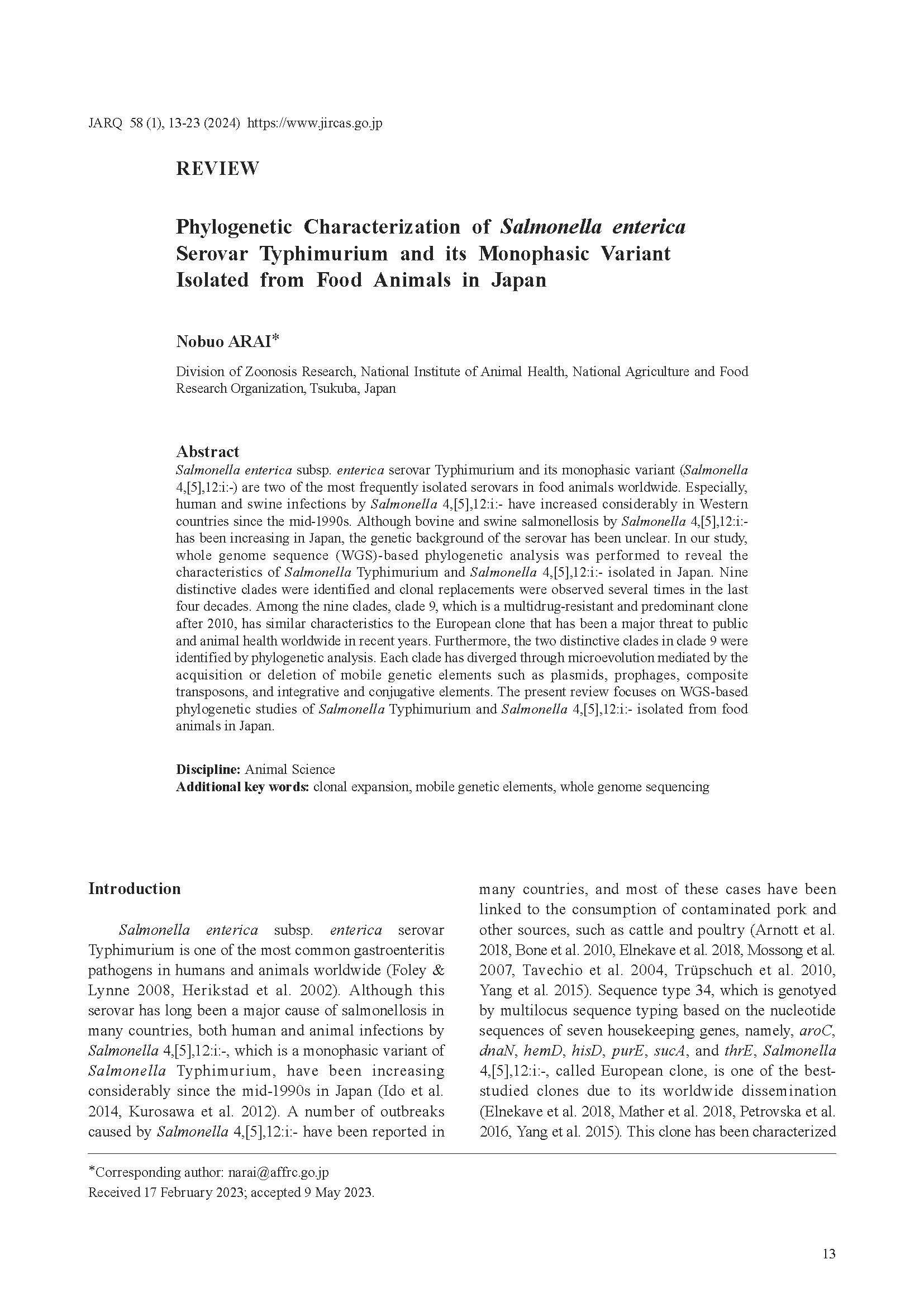Phylogenetic Characterization of Salmonella enterica Serovar Typhimurium and its Monophasic Variant Isolated from Food Animals in Japan
JARQ : Japan Agricultural Research Quarterly
| ISSN | 00213551 |
|---|---|
| 書誌レコードID(総合目録DB) | AA0068709X |

本文フルテキスト
jarq58-1_13-23.pdf1000.45 KB
Salmonella enterica subsp. enterica serovar Typhimurium and its monophasic variant (Salmonella 4,[5],12:i:-) are two of the most frequently isolated serovars in food animals worldwide. Especially, human and swine infections by Salmonella 4,[5],12:i:- have increased considerably in Western countries since the mid-1990s. Although bovine and swine salmonellosis by Salmonella 4,[5],12:i:- has been increasing in Japan, the genetic background of the serovar has been unclear. In our study, whole genome sequence (WGS)-based phylogenetic analysis was performed to reveal the characteristics of Salmonella Typhimurium and Salmonella 4,[5],12:i:- isolated in Japan. Nine distinctive clades were identified and clonal replacements were observed several times in the last four decades. Among the nine clades, clade 9, which is a multidrug-resistant and predominant clone after 2010, has similar characteristics to the European clone that has been a major threat to public and animal health worldwide in recent years. Furthermore, the two distinctive clades in clade 9 were identified by phylogenetic analysis. Each clade has diverged through microevolution mediated by the acquisition or deletion of mobile genetic elements such as plasmids, prophages, composite transposons, and integrative and conjugative elements. The present review focuses on WGS-based phylogenetic studies of Salmonella Typhimurium and Salmonella 4,[5],12:i:- isolated from food animals in Japan.
| 刊行年月日 | |
|---|---|
| 作成者 | Nobuo ARAI |
| 著者キーワード | clonal expansion mobile genetic elements whole genome sequencing |
| 公開者 | Japan International Research Center for Agricultural Sciences |
| 受付日 | 2023-02-17 |
| 受理日 | 2023-05-09 |
| オンライン掲載日 | |
| 巻 | 58 |
| 号 | 1 |
| 開始ページ | 13 |
| 終了ページ | 23 |
| DOI | 10.6090/jarq.58.13 |
| 言語 | eng |
